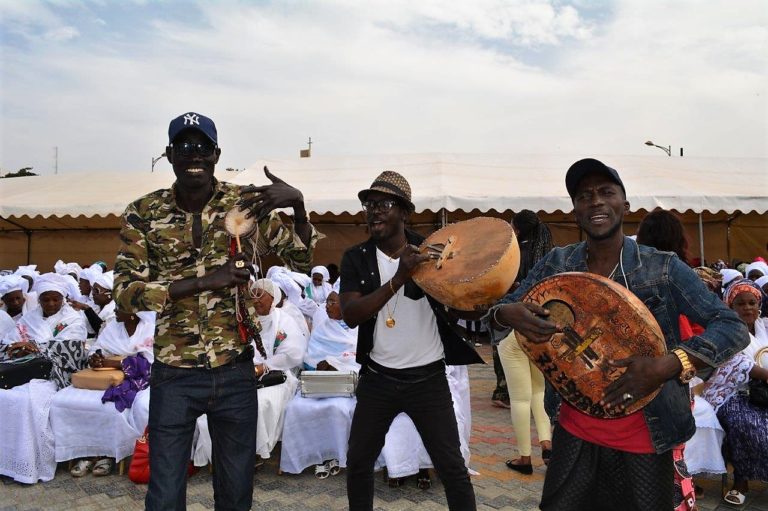The Link Between Religion and Family Planning

Can religious leaders be strong allies in advocacy efforts for family planning and reproductive health?
They can be, and in many countries they must be, if advocates want to achieve real impact. Billions of people around the world look to religious leaders in their communities for guidance on important personal decisions. Because people want to know that their life choices align with their faith, they rely on their imams, priests, pastors, rabbis, and other spiritual figures to provide the scriptural underpinning.
In Senegal, where an estimated 96 percent of the population is Muslim and most others are Christian, the government is taking maternal and child health (MCH) seriously and religious leaders are supporting their efforts. To raise awareness about MCH issues, the government recently joined forces with a range of stakeholders – including religious leaders – to launch the first official Week of Child and Maternal Health. A public fair held in the Place de l’Obélisque, located in central Dakar, the event attracted more than 1,000 people. Similar fairs will be held in communities across the country over the next few years and are intended to offer people the opportunity to learn about, and be in better control of their health.
The Dakar fair also provided a powerful venue for the premiere of a new ENGAGE presentation, Le Sénégal s’Engage: la Religion et la Santé familiale, that highlights the strong relationship between reproductive health and family planning issues with traditional religious values that support family health. PRB developed the ENGAGE multi-media video presentation in close partnership with religious leaders from Senegal’s Cadre des Religieux pour la Santé et le Dévelopement (CRSD) and technical experts from the government of Senegal’s Department of Maternal and Child Health (DSME). This effort was supported by the PRB-managed PACE (Policy, Advocacy, and Communication Enhanced for Population and Reproductive Health) project funded by the U.S. Agency for International Development.
Advocates in many countries use PRB’s ENGAGEs to present data and research findings in more accessible terms through clear and compelling narration, images, messages, and graphics. These presentations are used at the grassroots, national, and international levels to promote dialogue about important issues.
Senegal’s Ministry of Health was enthusiastic about the presentation project because the country, which is a leader in the West Africa region, has placed a high priority on significantly reducing maternal and child mortality rates through reproductive health and family planning strategies. Officials also saw that many Senegalese citizens were ready to adopt family planning methods but sought approval from their religious leaders. Meanwhile, some religious leaders wanted to grant this approval because they see the harsh consequences of closely spaced and multiple births on members of their congregations. But religious leaders needed a solid argument, based on both fact and faith.
Using the most current data, compelling images, and some key scripture passages, the ENGAGE presentation illustrates the links between family planning and birth spacing for improved MCH and the overall well-being of Senegalese families, which is a key concern of faith leaders. It also touches on the inextricable link between health, poverty, food insecurity, and the environment. Breaking down complex concepts and using nontechnical language, the presentation shows how religious leaders in Senegal can guide families so that they can lead spiritual, happy, and healthy lives.
The presentation also aligns with Senegal’s package of projects and reforms known as the Plan Sénégal Emergent, which emphasizes social and economic reforms, including significant investments in health. At the MCH fair’s opening ceremony, Dr. Abdoulaye Diouf Sarr, the minister of Health and Family Welfare, along with religious leaders from each of Senegal’s 14 districts and leading representatives from USAID and other global health funders, welcomed the large crowd and spoke fervently about Senegal’s commitment to improving the lives of women and children, and their commitment to ensuring universal health care and strengthening community-level activities to improve the quality of care.
Stakeholders from diverse sectors within Senegal will use this resource to promote policy dialogue about the critical role faith leaders can play in supporting family planning goals for the country. The presentation includes recommendations for religious leaders on how they can speak with families as well as other faith leaders about family health and use of modern contraceptive methods.
Willow Gerber is a senior policy and gender analyst in International Programs at PRB. She managed the Senegal ENGAGE project.
Peter Goldstein is vice president of communications and marketing at PRB.


